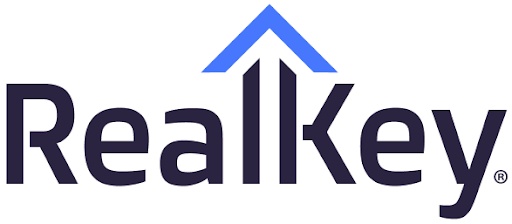Product Engineering for AI Enabled Tech [Panel Live Replay]
Hear from our Panel of SaaS and Digital Products experts about how AI is impacting Product Development.
On November 13, 2024, Develop SF, Tango and RealKey brought together a panel of Digital Products and Engineering experts to discuss how AI is shaping their roles.
Tech teams of all sizes run into alignment problems when making great products. Business, UX, and engineering can run into risky disagreements, and not be aware that it's happening. In the age of AI, new possibilities and new problems have arisen.

Eric Siegfried [MODERATOR]
CEO, Tango

Eric Siegfried founded Tango in 2010, where he learned the full stack of skills required to run a nearshore digital product development agency. With a passion for product strategy, impactful startups, and interesting conversations, Eric has helped facilitate more than 100 multi month client engagements, approved the hiring of more than 150 people, and invested in one startup per year.
Eric leads from a place of meaning over money, and strives to advance the careers of his team, as well as the communities that he manages. His personal aesthetic (classical guitar, social dance, and gaming) all inform an artful approach to building teams and products. He can also hang with the true techies, given his M.S. in computer engineering.

Chistopher Hussain [HOST]
CEO, RealKey

Christopher Hussain is the visionary Founder and CEO of RealKey, transforming the mortgage technology industry. Prior to founding RealKey in 2015, Christopher was the top Mortgage Originator in the US from 2010 to 2011 with his brokerage WeFit2U, funding billions in residential loans across all 50 states. Before the housing crisis, he also owned a 100-person branch office for the largest franchise brokerage in the US and served as National Sales Director. In 2013, he co-founded Sindeo, an online brokerage that raised $50 million before being acquired by Freedom Financial.
With a deep understanding of the mortgage landscape, Christopher has scaled numerous mortgage loan companies and earned recognition as a business and thought leader. At RealKey, he leverages his extensive industry experience to automate and simplify loan processing and underwriting, streamlining document collection and review for all parties. Under his leadership, RealKey is reducing inefficiencies and revolutionizing mortgage technology. Christopher's innovative approach and dedication to improving the mortgage process have positioned RealKey at the forefront of fintech and proptech. His commitment to excellence continues to drive RealKey's success and innovation.

Kyle Wild
CTO, Endgame
Kyle Wild has been writing software for 30 years, with a strong interest in AI and large-scale software that addresses complex problems. He is a student of distributed systems, incentive systems, and systems in general. Kyle is passionate about how organizational culture can bring out the best in people and teams, as well as how technology can assist in this process.
Throughout his career, mostly as a founder or early employee at venture-backed companies, Kyle has worked in engineering, product management, sales, marketing, and game design.
Today he serves as the CTO of Endgame.io,
re-imagining the CRM landscape through an AI-native lens.

Nagendra Kumar
CEO, Gleen
Nagendra is the Co-Founder & CTO at Gleen AI. At Gleen AI, Nagendra works with his team to build an AI agent platform for e-commerce businesses that helps increase sales and reduce support needs. Prior to joining Gleen, Nagendra was Head of Business Messaging at Meta, where I developed a messenger platform used by major companies such as Bank of America, KLM Airlines, Spotify, and others.
Additionally, Nagendra led the effort to create marketplace shops at Meta, allowing businesses to sell products directly to end users, similar to eBay. Before that, he was a tech lead at Microsoft for nearly 5 years, developing predictive analytics for Microsoft Windows devices and services.

Sejal D’Souza
Product Manager, Google
Sejal D’Souza is a skilled Product Manager with 13 years of experience in the tech industry. Currently building impactful products at Google, Sejal has held leadership roles at distinguished companies like Google, Airbnb, InVision, and Nike. She has launched and scaled products in new markets, found product-market fit, and prioritized features to grow user adoption.
Sejal's expertise spans computer vision, AI, shopping, payments, and accessibility across web, Android, and design platforms. Her ability to influence team buy-in, drive efficiency with Agile development, and lead cross-platform product strategy highlights her innovative and disruptive approach to product management.
What is AI, and it's role in Product Development & Engineering?
The discussion here primarily revolves around defining artificial intelligence (AI), its evolution, applications, and its role in product engineering.
The conversation concludes with reflections on the importance of starting with user needs and working iteratively to create AI solutions that provide tangible benefits, avoiding the pitfalls of "shiny object syndrome."
Definition of AI:
- AI involves embedding human-like intelligence into machines to process complex information and make decisions.
- Historically, AI has evolved from basic algorithms to advanced applications using extensive training data and sophisticated models.
Evolution and Current Use:
- In the early stages (e.g., 2008-2010), AI was rudimentary, involving basic data analysis.
- Recent advancements, including large language models, allow for more complex decision-making and automation of unstructured data tasks.
AI in Product Development:
- AI's value depends on the quality and structure of the input data.
- Pre-trained models enable quicker utility but require specialized learning cycles and data pipelines to integrate effectively into products.
- Collaboration across design, engineering, and product teams enhances innovation and product relevance.
Skepticism and Practicality:
- There is skepticism about overhyping AI, likened to past trends like blockchain, where applications were often unnecessary.
- Effective use of AI must focus on solving real-world problems rather than applying technology for its own sake.
Examples and Use Cases:
- Applications like customer support systems that utilize AI for unstructured data processing showcase its potential for efficiency gains.
- AI's ability to handle unstructured data opens opportunities for infinite possibilities in problem-solving.
Challenges in AI Implementation:
- The non-deterministic nature of AI makes outcomes less predictable, requiring iterative design and engineering cycles similar to game development.
- Cross-functional collaboration is essential for testing and refining AI applications effectively.
Future Directions:
- AI holds promise in areas like unstructured data classification and decision-making but requires problem-oriented approaches and agile development practices.
"AI is only as good as the data it learns from—clean, structured, and relevant information is the foundation for reducing errors and enhancing performance."
Nagendra Kumar
CEO, Gleen
AI Safety & Product Management
This session delves into the evolving landscape of artificial intelligence (AI) product management, focusing on the challenges and methodologies employed to ensure safety, reliability, and user satisfaction in AI-driven solutions. It highlights the critical role of trust, safety, and privacy while offering insights into the iterative processes that underpin successful AI development.
The conversation underscores the complexity of developing and managing AI-driven solutions, requiring a multidisciplinary approach that integrates engineering, data science, user experience, and business strategy. By focusing on trust, safety, and continuous improvement, teams can navigate the challenges of AI innovation and deliver impactful, reliable products to users.
AI Safety and Accuracy
A major focus is mitigating issues such as hallucinations in generative AI models. These hallucinations can be categorized as "good" (useful predictions or suggestions) or "bad" (misleading or factually incorrect). Addressing these issues requires dedicated cycles of trust and safety evaluations, privacy checks, and rigorous testing to ensure the AI outputs meet desired standards of accuracy and reliability.
Product Development Challenges
The development and implementation of AI solutions are heavily iterative. Developers must account for frequent model updates and enhancements, necessitating repeatable processes that include comprehensive testing for compliance with safety and privacy requirements. This dynamic nature requires teams to continuously adapt their strategies and workflows.
Data Management and Preparation
Preparing data for AI systems involves significant effort, including cleaning, restructuring, and optimizing it for specific use cases. Properly formatted data enables AI to extract meaningful insights, which reduces errors and enhances overall performance. This step is particularly crucial when integrating private or specialized datasets not found on the internet.
Quality Assurance and Scoring
Unlike traditional software development, AI systems require probabilistic evaluations rather than binary success/failure tests. Scoring models are used to assess parameters such as accuracy, consistency, verifiability, and relevance of AI-generated outputs. These scores inform iterative improvements and highlight areas needing refinement.
User-Centric Design
User experience (UX) plays a pivotal role in shaping effective AI products. By incorporating user feedback and designing intuitive interfaces, teams can create solutions that deliver meaningful results. An emphasis on enjoyable and efficient user experiences drives adoption and trust in AI products.
Evolving Product Management
The integration of AI has transformed product management, introducing new opportunities and challenges. Teams now revisit legacy features to determine whether they can be reimagined or replaced using AI capabilities. Prioritizing features with the greatest potential impact and value for users is critical, requiring a balance between innovation and practicality.
Scalability and Continuous Improvement
AI product development emphasizes scalability. With rapid advancements in AI technology, companies must design solutions that adapt and improve over time. This includes refining training processes, collecting user data for iterative enhancements, and maintaining compliance with evolving standards and regulations.
“I trust AI to help me with decisions, but I don’t trust it to make them for me. If it’s a low-risk decision, I might go with what it suggests, but if it’s something serious—finances, safety, business strategy—I still verify. That says more about how we interact with AI than about AI itself.”
Sejal D’Souza
Product Manager, Google
Is there Bias and Risk in AI?
This session delves into the multifaceted challenges and opportunities posed by the development and application of artificial intelligence (AI).
It navigates through critical discussions on bias, training methodologies, data diversity, and the broader societal impacts of AI technologies. By examining the role of both open-source and proprietary systems, it sheds light on the dynamics shaping the AI landscape.
The dialogue captures perspectives from various stakeholders, emphasizing the need for balance between innovation and ethical responsibility as AI technologies become more pervasive.
How Data Shapes AI
A central theme is the critical role of training data in shaping AI performance. The importance of minimizing bias through diverse and multifaceted datasets is highlighted, yet the inherent difficulty in achieving true impartiality is acknowledged. Participants discuss how data influences AI behavior, from language models that learn from internet discourse to autonomous vehicles trained on millions of miles of driving data. The challenge lies in curating training data that reflects a balanced reality while addressing potential societal and ethical concerns.
AI Innovation
The discussion draws comparisons between startups and established enterprises in their approach to AI innovation. Startups are noted for their flexibility and ability to build fresh systems unencumbered by legacy infrastructure, while larger companies face challenges in integrating new technologies with existing frameworks. This juxtaposition underscores the advantages of agility in developing cutting-edge solutions and experimenting with novel approaches to AI deployment.
Real-World Readiness
AI's rapid evolution has also sparked debates about its readiness for deployment in real-world scenarios. Use cases such as customer support systems and autonomous driving are explored to illustrate the nuanced trade-offs between safety, reliability, and user acceptance. Participants emphasize the iterative nature of AI testing, from baseline comparisons to phased rollouts, and stress the importance of establishing robust guardrails to mitigate potential failures.
Societal Impacts
The societal implications of AI extend beyond technical considerations. The discussion touches on public trust in AI systems, the impact of automation on employment, and ethical questions about content attribution. As AI-generated outputs become increasingly indistinguishable from human-created content, the need for clear guidelines and accountability grows more pressing. Additionally, concerns are raised about the mental health of individuals tasked with reviewing sensitive or harmful data to train or validate AI systems, highlighting the human cost of technological progress.
In Conclusion
The panel presents a vision of AI as a transformative yet nascent technology. While it is still in the early stages of its development, with vast untapped potential, it also comes with profound responsibilities for its creators and users. The insights underscore the importance of fostering trust in AI through transparency, ethical data practices, and ongoing engagement with diverse stakeholders. Moreover, they highlight the critical need for a proactive approach to regulation and societal adaptation, ensuring that AI's benefits are maximized while its risks are minimized.
As humanity continues to integrate AI into daily life, the discussion concludes on a note of cautious optimism. By addressing current limitations and preparing for future challenges, AI can evolve into a tool that enhances human creativity, decision-making, and problem-solving. However, realizing this vision requires vigilance, collaboration, and a commitment to placing human well-being at the heart of technological progress.
